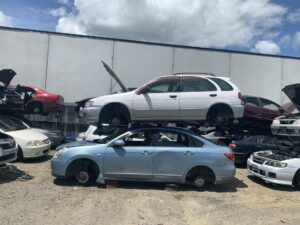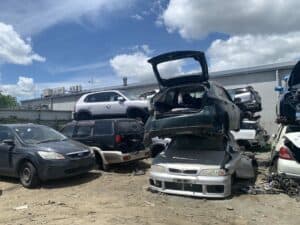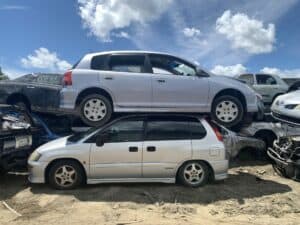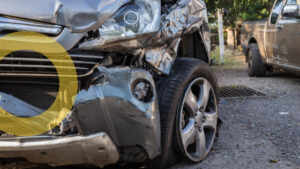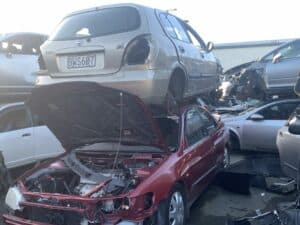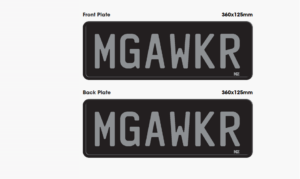Generally, the lifespan of a wheel bearing is approximately 136,000 to 160,000 km. However, there are many exceptions to this rule. How often you need to replace your car’s wheel bearing depends on the quality of the part itself and the conditions you operate your car in.
So even if the car is old, the wheel bearing might not need replacement. In this article, we will talk about how you can know whether you should replace your car’s wheel bearing.
In this article we will cover
What Is a Wheel Bearing?
A wheel bearing connects the wheel with the axle. Its main function is to help the wheel move smoothly, as in, with minimum friction.
It’s an extremely crucial part of the wheel system of the car. To elaborate, the wheel bearing is a safety measure to help your car bear the radial and axial loads caused by various forces.
If you need to find a replacement wheel bearing it is recommended to purchase a new one. However, for other used parts in Auckland and Hamilton, you can contact our car wreckers.
How To Know Your Wheel Bearing Needs To Be Replaced?
If you’re lucky, you won’t have to replace the wheel bearing in the entire lifetime of a vehicle. But if the damage or weakness symptoms appear, you’ll know it’s time to replace it. Here is how you can figure that out-
Making rapid noise
The wheel bearing makes a humming noise, which usually means there is internal damage. This is especially audible when you drive your car at high speed. You’ll also hear a clunking noise when driving through uneven roads.
Making noise at times, quiet at others
If only one row of the wheel bearing gets damaged, you will see that it makes noise when you take turns. This happens because the load shifts to the side of the bearing according to the direction of your turn. But when you’re moving straight, it will become quiet even at high speed.
Related services

Squeaking or clunking noise
If the wheel bearing is loose, the car will make a squeaking noise resembling a growl.
Steering wheel problems
You will feel vibrations in the steering wheel if the wheel bearing isn’t working properly. The vibration usually happens during high speed and turns.
The warning light turns on
Your car should have an anti-lock braking system (ABS). The wheel bearing has an ABS sensor attached to it. If the wheel bearing comes loose, then the ABS will not be able to get the proper reading. As a result, the warning light will turn on.
Why Should You Replace Your Wheel Bearing if It Stops Working?
It’s not that your car will completely stop working if the wheel bearing goes bad. But a worn-out wheel is never safe. If the wheel bearing remains non-functional, it can cause your wheel to stop or fall out mid-drive, which will seriously damage your car.
Moreover, when the noise from the wheel bearing becomes common due to not being fixed, you might not notice the other kinds of noise popping up. Some types of car noises mean serious issues in the system, so that’s not a risk you should take.
In conclusion, there is no hard and fast rule about when to replace the wheel bearing; it all depends on whether there are symptoms. When in doubt, just visit a mechanic for guidance.

